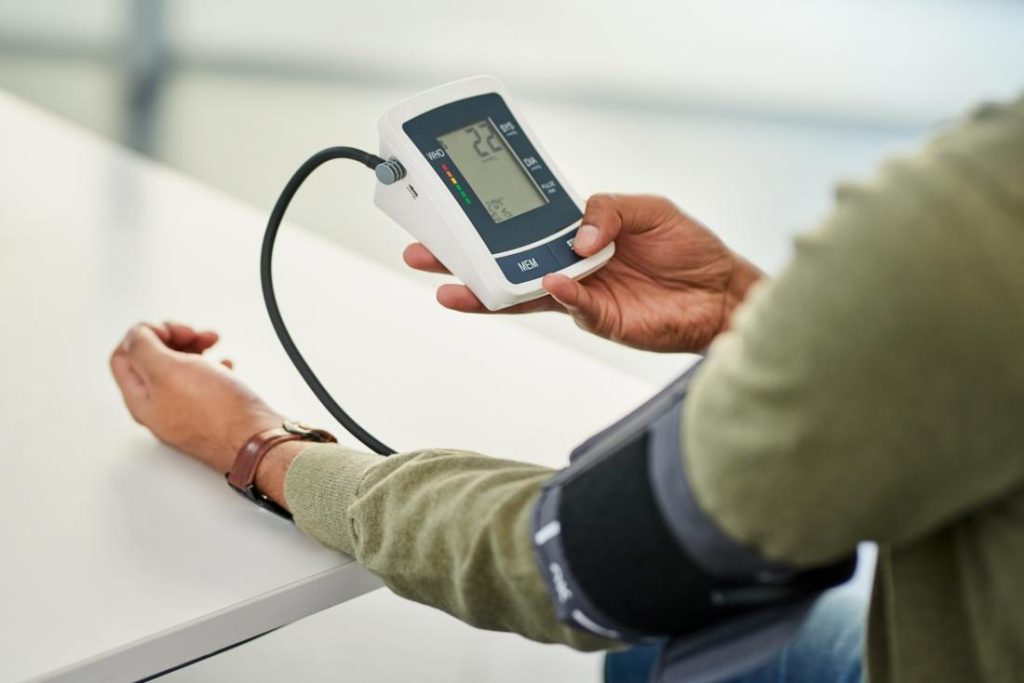An Abuja-based medical practitioner, Dr Ikechukwu Orji, says that 30 per cent of screened Kaba community members in the Federal Capital Territory (FCT) are hypertensive.
Orji, the Head of the Primary Health Care Department, Kwali Area, made the disclosure during a free medical outreach he led to the Kaba community in Abuja on Wednesday.
He revealed that preliminary screenings in Kaba also showed that 10 per cent had abnormal blood sugar readings, indicating probable diabetes.
The medical expert described the finding as “deeply concerning,” noting that the diabetes rate was more than triple the national average of three per cent.
“The Kaba results follow a trend of high disease burden recorded in other FCT communities over the past six weeks, including Gariki Primary Health Care (PHC) with 47 per cent hypertensive and 10 per cent diabetic, and Kagini PHC with 40 per cent hypertensive and 14 per cent diabetic.
Orji noted that the national average for diabetes was three per cent, but in Kaba, it was already at 10 per cent calling for urgent action to address the situation.
He called for the adoption of the Federal Government’s Task-Shifting and Task-Sharing (TSTS) policy to improve healthcare delivery in rural communities, amid an “alarming surge” in hypertension and diabetes.
“This is where task-shifting policy is important. It allows non-physician healthcare workers to manage uncomplicated cases of hypertension and diabetes under the supervision of doctors.
“This approach aims to reduce the burden on hospitals and improve access to healthcare in rural areas,” Orji said.
He explained that the Kaba screening was the first step in a pilot study to integrate diabetes treatment into PHCs, building on a successful hypertension pilot across 60 PHCs in the FCT.
“This is my project, something that is born out of passion. To help the downtrodden and the underserved.
“We decided to bring the screening closer here, so that those who are not able to come to Kagini, by reason of transport or other issues, we will bring it closer to their doorstep,” he said.
He explained that the relentless rise of non-communicable diseases in primary health centres prompted him to take action.
“The project was meant to empower the community health workers and also the nurses and the CHOs working in the primary health care centres to treat hypertension.
“In line with the task-sharing policy, we have implemented this project for hypertension across 60 places and we have seen great success with non-physician health workers managing hypertension comfortably under the doctors.
“Many people who have Diabetes Mellitus, after so many years, may end up having Hypertension and visa viz the complications that arose from the two diseases.
“This realisation led me to pilot a study to test primary healthcare workers’ ability to manage diabetes.
“This is usually for uncomplicated cases. The healthcare workers are also trained to see complicated cases and then refer them early,” he said.
He confirmed that individuals with diabetes would be immediately enrolled for free initial treatment at the Kagini PHC, a district centre serving the Kaba community.
Orji underscored the importance of the project, citing the Abuja Heart Study which found that most stroke cases in Nigeria originated from hypertension, followed closely by diabetes.
“Uncontrolled hypertension and diabetes can lead to severe complications like stroke, heart failure, kidney failure, and blindness.
“The majority of the stroke cases we had in Nigeria come from hypertension followed by diabetes as the root cause.
“The same goes with heart failure. So our target is to curb these complications that used to kill people at the prime of life,” he said.
He noted that the project was a collaborative effort, receiving full support from the AMAC Chairman, Mr Christopher Maikalangu, academic partners, U.S.-based health providers, local volunteers, and traditional rulers.
“The project is part of Maikalangu’s campaign promises to the people to improve the health care of the rural populace,” he added.
Community residents commended the organisers for their efforts.
Mrs Favour Samuel, a beneficiary, said: “I came fasting and tested for fasting blood sugar. I really appreciate their service.
“This will create more awareness, to know what’s in your body, to know how to take care of yourself,” she said.
Another resident, Mr Charles Edo, said: “I am the first person on the list. They say that my test is successful. They say that I’m okay,” he said.
The Village Head, Mr Yahaya Ibrahim, expressed gratitude for the initiative, which he believed would improve the health and well-being of his people.
NAN reports that the outreach was held in the palace of the Kaba chief, with traditional leaders and community members showing support.
Orji, the former Chief Medical Officer/Consultant with AMAC Primary Health Care Department, appreciated the volunteers and community members who participated in the outreach.
NAN recalls that the Federal Government in 2014 introduced the TSTS policy to address healthcare worker shortages by redistributing tasks from highly skilled to lower-cadre healthcare workers. The policy was updated in 2022.
The post 30% FCT community members screened are hypertensive – Medical expert appeared first on Vanguard News.

